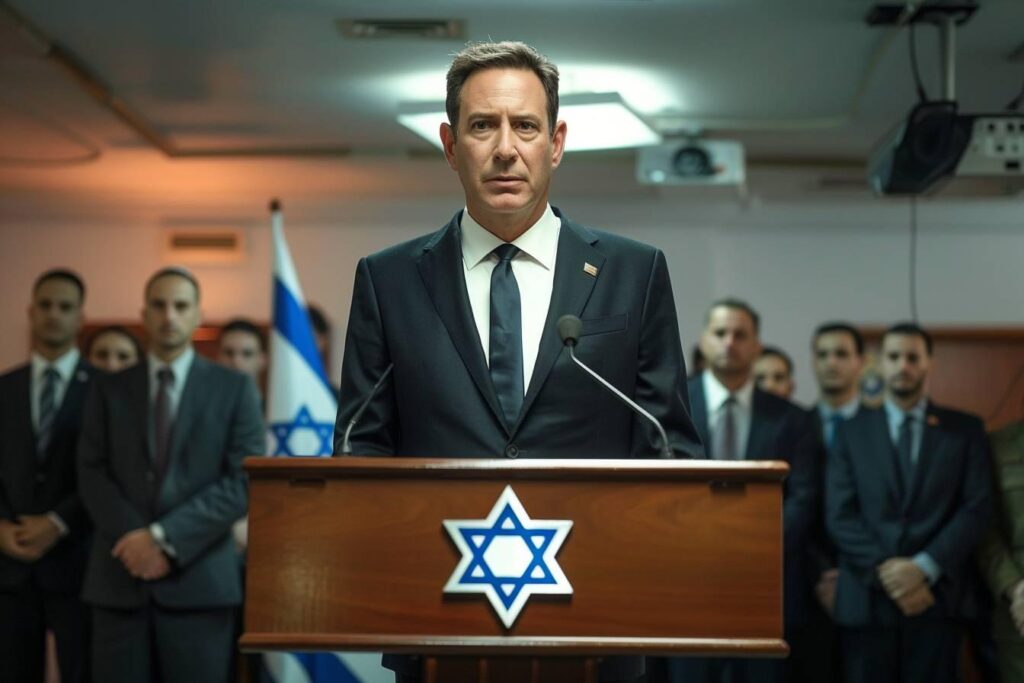Breaking Patterns and Seeking Change: Lessons from Parshat Lech Lecha

In the wake of significant global events, be it the tumultuous aftermath of the 2016 election or the ongoing challenges faced by communities around the world, the wisdom of ancient texts like Parshat Lech Lecha resonates deeply with those seeking understanding and guidance. This week’s Torah portion is not just a scriptural reading, but a mirror reflecting our contemporary struggles and offering profound insights into how we might navigate them.
The Eternal Cycle: Historical Repetitions and Their Significance
The narrative of Parshat Lech Lecha, which details Abraham’s journey at God’s command and the trials he faces, serves as more than a mere story. It is seen by many rabbis as prefigurative, setting a pattern that would echo throughout the history of the Jewish people. From Jacob’s descent to Egypt to the ominous threats faced by Israelite firstborns, these scriptural moments are not isolated incidents but markers of a recurring historical cycle.
In this portion, we observe Abraham complying with God’s unexpected call to leave his homeland without knowing his destination. This act of faith and its ensuing trials are reflective of the broader Jewish experience—marked by displacements and new beginnings. Abraham’s journey is emblematic of every seeker’s journey, underscoring a universal theme of venturing into the unknown for a greater cause.
Sarah’s Ordeal: A Reflection on Sacrifice and Protection
The actions of Sarah, who follows Abraham’s request to disguise their marital status to protect him, resulting in her capture by Pharaoh, raises critical ethical questions. This episode is troubling yet illuminating, highlighting themes of sacrifice and vulnerability that recur in Jewish history. The mystical commentator Nachmanides criticizes Abraham for his decision, suggesting it foreshadowed the Jewish enslavement in Egypt—a profound example of how individual actions can ripple through generations.
Maaseh Avot Siman L’Banim: The Weight of Ancestral Choices
The principle of “maaseh avot siman l’banim,” which translates to “the deeds of the fathers are a sign for the children,” suggests that our ancestors’ actions and decisions provide omens for their descendants. This concept raises an important question about responsibility and consequence: If harmful patterns are repeated without introspection or change, are we doomed to face similar catastrophes?
The Need for Structural Change
The author of the article argues convincingly that celebrating minor victories is insufficient if we do not address underlying systemic issues. It’s a call for profound structural change to prevent history from merely repeating itself in slightly altered forms. As such, it urges us not only to remember but also to act decisively to break harmful cycles.
Finding Inspiration in Ancestral Stories of Change
We are reminded to look for moments when our ancestors broke harmful patterns and initiated meaningful change. Abraham’s renunciation of idolatry in favor of monotheism was a revolutionary act that altered his course and subsequently shaped the identity and theology of future generations.
This historical reflection serves as a powerful reminder that change often starts with individuals whose courageous choices have far-reaching effects. In the face of overwhelming challenges, personal agency and resilience can indeed alter the trajectory of history.
Revisiting Sacred Texts as Agents of Change
Each year, as we revisit the same sections of Torah, we are not the same people we were in previous readings; neither is our world unchanged. This cyclical engagement with text encourages us to find new meanings and lessons applicable to our current circumstances. It is an opportunity to reflect on personal growth and societal transformation.
Conclusion: Embracing Our Role in Shaping History
The lessons from Parshat Lech Lecha extend beyond religious or historical significance; they are profoundly relevant to how we view our roles within society today. As carriers of our ancestral legacy, we have both the burden and the privilege to influence future generations through our actions today.
In times of political upheaval or social distress, let us draw strength from our rich heritage and strive not only to survive but thrive by breaking destructive patterns and championing change. Let us be inspired by Abraham’s journey and Sarah’s ordeal to forge paths that honor their memories while boldly addressing the unique challenges of our time.
As we continue to read and learn from these age-old stories, may we find ourselves equipped and inspired to create a world that reflects our highest values and aspirations.


